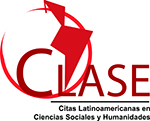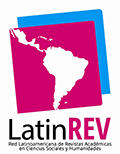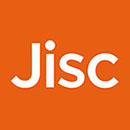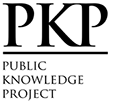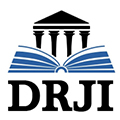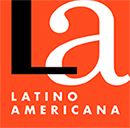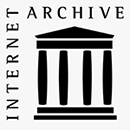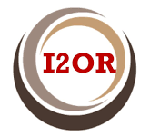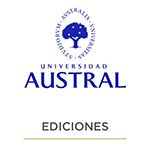Una mirada al discurso de la inteligencia artificial y el derecho de autor desde la teoría de la personalidad
Resumen
La Inteligencia Artificial es un fenómeno que ha evolucionado y se ha hecho cada vez más notable en nuestra sociedad, especialmente desde lo que se ha denominado como la “Cuarta Revolución Industrial”, un periodo en el cual se vio un gran aumento en la creación de invenciones tecnológicas. Debido a este desarrollo exponencial, la Inteligencia Artificial se ha tomado un papel relevante en nuestro día a día. Una de las formas en las que estas tecnologías se han hecho presentes en nuestra sociedad, ha sido mediante la creación de obras literarias, artísticas y científicas, lo cual ha significado que vuelvan a debatirse figuras clásicas que se creían ya cerradas dentro del Derecho de Autor, entre estas figuras se destaca la de la autoría, la originalidad y, consecuentemente, la titularidad de derechos. La respuesta sobre este último, ha tenido distintas respuestas clásicas, lo cual es común encontrar en distintos textos académicos, pero el objetivo de este artículo es presentar una propuesta desde los fundamentos filosóficos del Derecho de Autor a partir del estudio de la Teoría de la Personalidad, definiéndola como una de las principales teorías que pueden justificar la existencia de sistemas normativos del Derecho de Autor, con el fin de determinar si las obras producidas por este tipo de tecnología, pueden ser susceptibles de reconocimiento de derechos dentro de nuestro sistema jurídico.
Descargas
Citas
Antequera Parilli, R. (2007). Estudio de Derecho de Autor y Derechos Afines. Reus.
Arendt, H. (2015). La condición Humana. Vida activa y condición humana (2ª ed.). Paidós.
Attas, D. (2008). Lockean Justification of Intellectual Property. En Gosseries, A. Marciano, A. y Strowel, A., Intellectual Property and Theories of Justice. Palgrave Macmillan.
Bécourt, D. (1990). La Revolución Francesa y el Derecho de Autor: Por un Nuevo Universalismo. Boletín de Derecho de Autor, XXIV(4).
Boden, M. (1998). Computer Models of Creativity. En Sternberg, R., Handbook of Creativity (pp. 351-372). Cambridge University Press.
Bringsjord, S. y Govindarajulu, N. S. (2018). Artificial Intelligence. Stanford Encyclopedia of Philosophy.
Carbonell, C. (2015). Platón visita una exposición de Malévich. El arte en la ampliación de la experiencia filosófica. En Llano, A., El arte más allá de sí mismo. Aproximaciones a la cultura artística contemporánea (pp. 91-109). Siglo XXI.
Chiassoni, P. (2011). Técnicas de Interpretación Jurídica. Marcial Pons.
Cohen, J. (2007). Creativity and Culture in Copyright Theory. UC Davis Law Review, 40, 1151-1205.
Comisión de la Unión Europea. (2018). Communication from the Commission to the European Parliament, the European Council, the Council, the European Economic and Social Committee and the Committee of the Regions. Artificial Intelligence for Europe SWD(2018) 137 final.
Córdoba, J. F. (2015). El Derecho de Autor y sus Límites (1a ed.). Temis.
Dock, M. C. (1974). Génesis y evolución de la noción de propiedad literaria. Revue Internationale du Droit D'Auteur (RIDA).
Drahos, P. (2016). A Philosophy of Intellectual Property. Australian National University eText.
Draper, J. W. (1921). Queen Anne’s Act: A Note on English Copyright. Modern Language Notes, 36(3), 146-154.
Du Bois, M. (2018). Justificatory Theories for Intellectual Property Viewed through the Constitutional Prism. University of South Africa: PER/PELJ.
Durante, M. (2019). Potere computazionale. L'impatto delle ICT su diritto, società, sapere (Italian edition). Meltemi.
Dworkin, R. (1978). Liberalism. En Hampshire, S., Public and Private Morality (pp. 113- 143). Cambridge University Press.
Espejo, J. C. (2020). ¿Cuáles son las fronteras en los Procesos de Desarrollo de la IA? En Inteligencia Artificial. Transformaciones y retos en el sector editorial (pp. 18-32). CERLALC/UNESCO.
Fariñas, J. R. (2020). Inteligencia Artificial y derecho de autor: consideraciones sobre la autoría y la titularidad. En Inteligencia Artificial. Transformaciones y retos en el sector editorial (pp. 33-50). CERLALC/UNESCO.
Fisher, W. (2001). Theories of Intellectual Property. En New Essays in the Legal and Political Theory of Property (pp. 168-199). Cambridge University Press.
Geller, P. E. (1994). Must Copyright be Forever Caught between Marketplace and Authorship Norms? En Sherman, B. y Strowel, A., Of authors and origins. Oxford University Press.
Gervais, D. J. (2008). Intellectual Property and Human Rights: Learning to Live Together. Kluwer.
Gervais, D. J. (2019). The Machine As Author. Iowa Law Review, 105, 2053-2106.
Ginsburg, J. (1997). Author and Users in Copyright. Journal of the Copyright Society of the U.S.A., 45(1), 1-20.
Ginsburg, J. (2019). Informe General, Justificación del los Derechos de Autor. En Blomqvist, J., Copyright to Be or not to Be. ALAI. Ex Tuto.
Ginsburg, J. C. y Budiardjo, L. A. (2019). Authors and Machines. Berkeley Technology Law Journal, 3, 343-456.
Gordon, W. (1993). A Property Right in Self-Expression: Equality and Individualism in the Natural Law of Intellectual Property. Yale Law Journal, 102, 1533-1609.
Hamet, P. y Trembaly, J. (2017). Artificial Intelligence in Medicine. Metabolism.
Hegel, G. (1966). Fenomenología del Espíritu. Fondo de Cultura Económica.
Hegel, G. (1991). Elements of the Philosophy of Right. Cambridge University Press.
Hervada, J. (2002). ¿Qué es el Derecho? Eunsa.
Hettinger, E. (1989). Justifying Intellectual Property. Philosophy and Public Affairs, 18(1), 31-52.
Holzinger, A., Langs, G., Denk, H., Zatioukal, K. y Müller, H. (2019). Causability and Explainability of Artificial Intelligence in Medicine. WIREs.
Huges, J. (1998). The Philosophy of Intellectual Property. Georgetown University.
Kant, I. (1887). The Philosophy of Law. T. & T. Clark.
Kant, I. (1973). Crítica del juicio. Porrúa.
Kateb, G. (1992). The inner Ocean: Individualism and Democratic Culture. Cornell University Press.
Landes, W. M. y Posner, R. A. (2003). The Economic Structure of Intellectual Property Law. Harvard University Press.
Lipszyc, D. (2017). Derecho de Autor y Derechos Conexos. CERLALC.
Litman, J. (1990). The Public domain. Emory Law Journal, (39), 965-1023.
Locke, J. (1988). Two Treatises of Government. Cambridge University Press.
Menell, P. (2000). Intellectual Property: General Theories. En Bouckaert, B. y De Geest, G., Encyclopedia of Law & Economics (Vol. II, pp. 129-188). Cheltenham.
Merges, R. P. (2011). Justifiying Intellectual Property. Harvard University Press .
Mills, M. (23 de febrero de 2016). Artificial Intelligence in Law: The State of Play 2016. Thomson Reuters Legal Executive Institute blog. https://www.legalexecutiveinstitute.com/artificial-intelligence-in-law-the-state-of-play-2016-part-1/.
Moore, A. (2015). Lockean Foundations of Intellectual Property. The WIPO Journal - Analysis of Intellectual Property Issue, 7(1), 29-40.
Munzer, S. R. (1993). Kant and Property Rights in Body Parts. Canadian Journal of Law and Jurisprudence, 6, 319-342.
Netanel, N. (1992). Copyright alienability restrictions and the enhancement of author autonomy: normative evaluation. Rutgers Law Journal, 24(2), 347-442.
Nozick, R. (1974). Anarchy, State, and Utopia. Basic Books.
Nussbaum, M. (2000). Women and Human-Development: The Capabilities Approach. Cambridge University Press.
Nussbaum, M. (2003). Capabilities as Fundamental Entitlements. Feminist Economics, 9(2-3), 33-59.
OCDE. (s.f.). Recommendation of the Council on Artificial Intelligence. OECD/LEGAL/0449.
Páez, P. (2021). La teoría de la personalidad y la inteligencia artificial: una respuesta desde lo clásico con la mirada contemporánea del acervo común. Universidad de La Sabana.
Poole, D., Mackworth, A. y Goebel, R. (1998). Computational Intelligence. A logical approach. Oxford University Press.
Radin, M. J. (1982). Property and Personhood. Stanford Law Review, 34(5), 957-1015.
Robinson, D. L. (1991). On the Neurology of Intelligence and Intelligence Factors. En Rowe, H., Intelligence Reconceptualization and measurement. Australian Council for Educational Research.
Sancho Caparrini, F. (2018). Breve Historia de la Inteligencia Artificial. Revista de Occidente, (446-447), 19-33.
Schwab, K. (2016). La Cuarta Revolución Industrial. Debate.
Shiffrin, S. (2001). Lockean Arguments for Private Intellectual Property. En New Essays in the Legal and Political Theory of Property. Camridge Studies in Philosophy and Law.
Steiner, C. (1998). Intellectual Property and the Right to Culture. Panel Discussion on Intellectual Property and Human Rights. World Intellectual Property Organization. https://www.wipo.int/edocs/mdocs/tk/en/wipo_unhchr_ip_pnl_98/wipo_unhchr_ip_pnl_98_2.pdf.
Stengel, D. (2004). La propiedad intelectual en la filosofía. Revista La Propiedad Inmaterial, 8, 71-106.
Sternberg, R. J. (2013). Intelligence. En Freedheim, D. K. y Weiner, I. B., Handbook of psychology: History of psychology (pp. 155-176)). John Wiley & Sons, Inc.
Tatarkiewicz, W. (1992). Historia de seis ideas. Arte, belleza, forma, creatividad, mímesis, experiencia estética (Presentación B. Dziemidok, Trad. F Rodríguez Martín). Tecnos.
Treiger-Bar-Am, K. (2008). Kant on Copyright: Rights on Transformative Authorship. Cardozo Arts & Entertainment Law Journal, 25(3), 1059-1104.
Treiger-Bar-Am, K. (2016). Copyright and Positive Freedom: Kantian and Jewish Thought on Authorial Rights and Duties. Journal of the Copyright Society of the USA, 63(4), 551-572.
Velázquez, L. (2004). Bienes (9a ed.). Temis.
Woodmanse, M. (1984). The Genius and the Copyright: Economic and Legal Conditions of the Emergence of the ‘Author’. Eighteenth-Century Studies, 17(4). 425-448.
Yoo, C. S. (2019). Rethinking Copyright and Personhood. Faculty Scholarship at Penn Law, (423), 1039-1077.
Derechos de autor 2021 Pablo Miguel Páez Chaljub

Esta obra está bajo licencia internacional Creative Commons Reconocimiento-NoComercial-SinObrasDerivadas 4.0.
Esta licencia permite copiar, distribuir, exhibir y representar la obra siempre y cuando se reconozca la autoría y se cite la obra de la forma adecuada. No se permite el uso comercial de la obra original ni la generación de obras derivadas.
Los autores garantizan a la Revista Iberoamericana de la Propiedad Intelectual el derecho de ser la primera publicación del trabajo.









